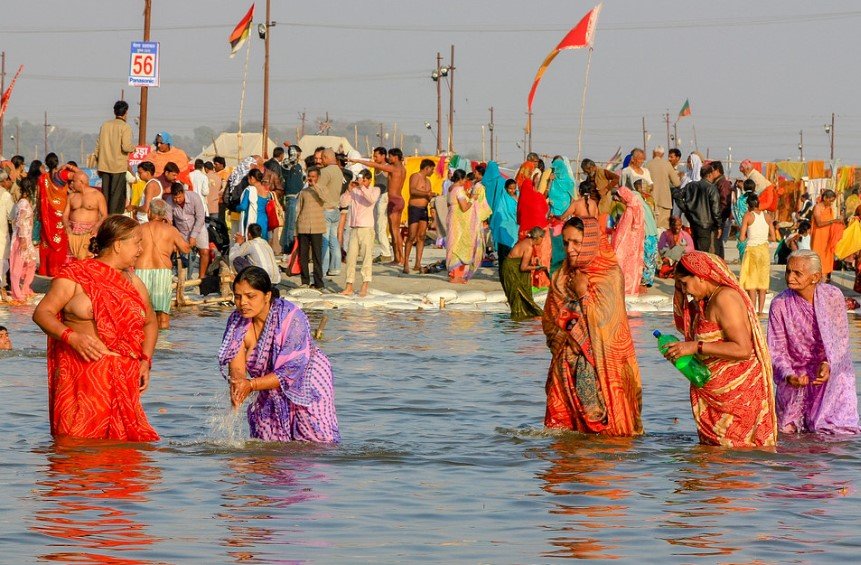A fresh controversy is raging after Rahul Gandhi accused the Uttar Pradesh government of burying the actual death toll in the January 29 Maha Kumbh stampede. The allegations, grounded in a recent BBC investigation, suggest a grim reality that may have been intentionally concealed.
Congress and Samajwadi Party leaders are pointing fingers at the BJP-led administration, raising questions of accountability and the recurring trend of understating fatalities in major public tragedies. For now, the ruling side is tight-lipped.
Gandhi, Yadav Blast State Over ‘Hidden’ Stampede Deaths
Congress leader Rahul Gandhi didn’t mince words. Posting on X, he referenced a BBC report that alleges the official death toll was grossly underreported.
“Just like COVID,” he wrote, “the bodies of the poor have once again been erased from the statistics. Like after railway accidents, the truth is suppressed.”
His tone was scathing. “This is the BJP model. If there’s no count, there’s no accountability,” he added.
In a similar move, Samajwadi Party chief Akhilesh Yadav backed the claim with the same report. According to him, the administration lied — plain and simple.
What the BBC Report Actually Claims
The controversy hinges on a figure — or two. The BBC report claims 82 people lost their lives in the stampede during the Maha Kumbh gathering in Prayagraj. But the Uttar Pradesh government’s official toll? Just 37.
That gap of 45 missing deaths isn’t just a number. For the families involved, it’s the difference between closure and abandonment.
The BBC investigation reportedly gathered inputs from local hospitals, eyewitnesses, and district authorities. In some cases, families of the deceased said they were advised to “remain silent” or accept compensation without raising questions.

Chief Minister Yogi Adityanath’s Calculated Silence
UP CM Yogi Adityanath has not entirely denied the event — but his response raised eyebrows.
In a closed-door administrative meeting, a leaked note quotes him saying: “We didn’t allow the incident to be excessively highlighted as it would create panic.”
That phrasing hit a nerve. Critics say it mirrors past crises where visibility was managed more rigorously than the actual problem.
Adityanath’s office later clarified that relief measures were taken promptly, and there was “no deliberate cover-up.” Still, there’s been no direct comment on the BBC report or the number discrepancy.
Déjà Vu: COVID, Rail Accidents, and the Pattern of Suppression
The opposition’s fury isn’t just about one event. It’s about what they say is a recurring tactic. Gandhi compared it to the mass underreporting of COVID-19 deaths, especially in rural Uttar Pradesh. Remember those haunting visuals of bodies floating in the Ganga?
Here’s a look at other events where numbers didn’t seem to add up:
-
2021 COVID second wave: Official UP death toll was 22,000+, but independent estimates pegged it over 100,000.
-
Balasore train crash, 2023: Initially reported toll was 288; survivors alleged higher casualties.
-
Unnao rape-murder case: Questions around FIR filing and administrative silence were hotly debated.
This broader narrative is what Rahul Gandhi and Akhilesh Yadav are tapping into — the idea that the poor and voiceless in India often don’t even get counted.
Public Reaction: Disbelief, Anger, and Fatigue
While politicians argue, the public mood is a mix of disbelief and fatigue. Some feel numb to yet another revelation, while others are furious.
In Prayagraj, one shopkeeper near the Kumbh site said, “We saw ambulances, sirens… more than what they said on TV. But we’re used to these lies now.”
For others, the report sparked painful memories.
Shalini Tiwari, who lost her uncle in the stampede, told a Hindi news outlet, “We were given ₹50,000 and told to keep quiet. There was no death certificate.”
Why the Numbers Matter Beyond Politics
The truth about how many died isn’t just a political grenade. It shapes everything from compensation to policy. If deaths aren’t counted:
-
There’s no accountability from disaster management agencies.
-
Compensation is either denied or reduced.
-
Public trust in authorities keeps eroding.
-
Lessons aren’t learned, and mistakes get repeated.
Here’s a comparison of reported vs. alleged tolls across recent disasters:
| Event | Official Death Toll | Estimated/Reported Discrepancy |
|---|---|---|
| Maha Kumbh 2025 Stampede | 37 | 82 (BBC Report) |
| COVID-19 UP Rural Deaths | ~22,000 | 100,000+ (Lancet Estimate) |
| Balasore Train Crash 2023 | 288 | 350+ (Eyewitness claims) |
| 2020 Migrant Deaths | 198 | Over 900 (NGO estimates) |
This table? It’s not just data. It’s a pattern people are starting to recognize.
What Happens Next?
For now, the UP government hasn’t responded officially to the BBC story. No press conference, no counter-narrative, no formal inquiry.
But pressure is building. Congress is demanding an independent judicial probe. Samajwadi Party wants the Governor to intervene.
The Election Commission, while not directly involved, is reportedly watching developments closely given the proximity to the 2026 UP Assembly polls.
Meanwhile, BBC India has stood by its reporting, stating that “every claim is backed by documentation and field verification.”
Only time will tell if this controversy fizzles out or forces some uncomfortable reckoning.
